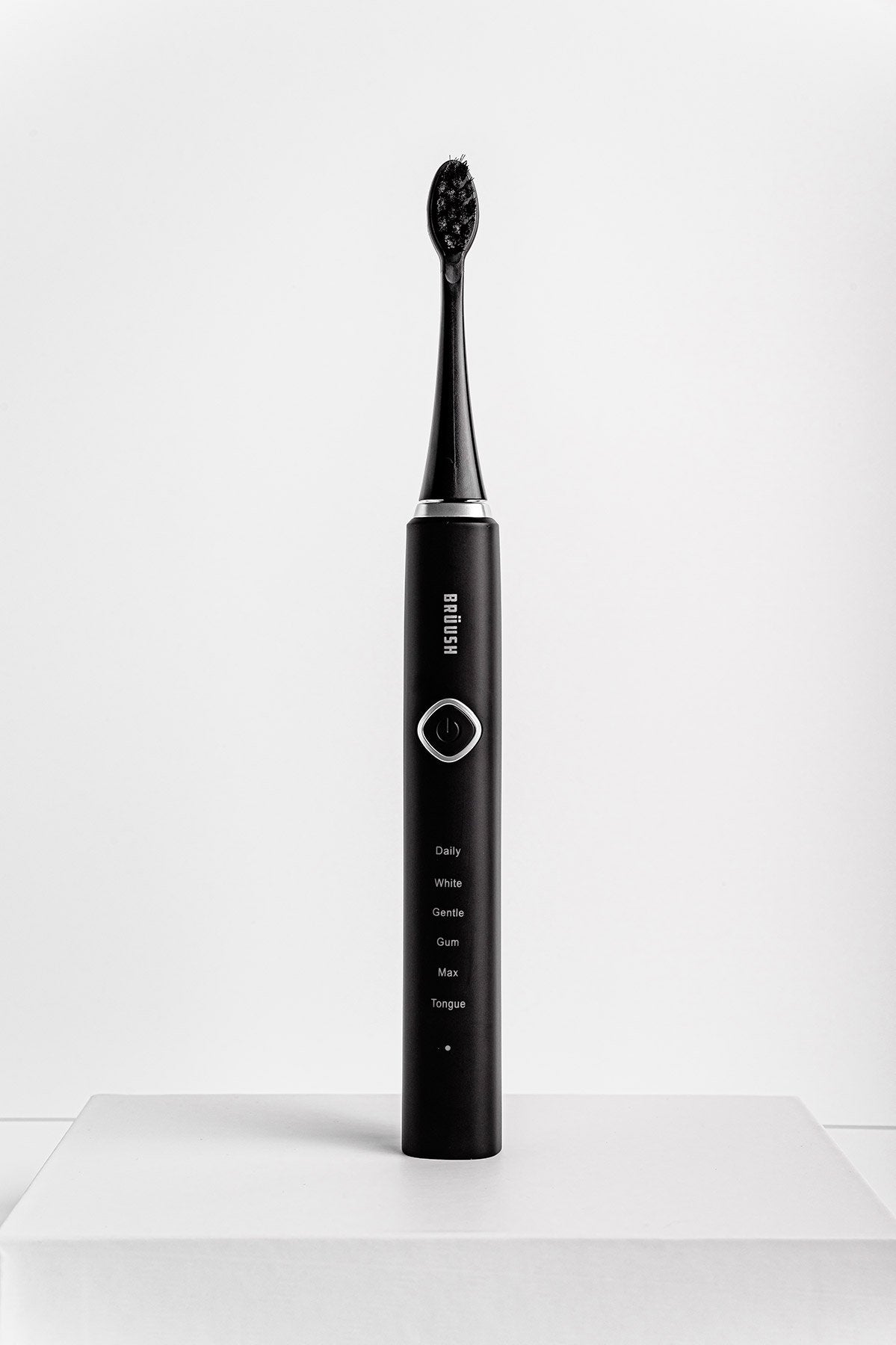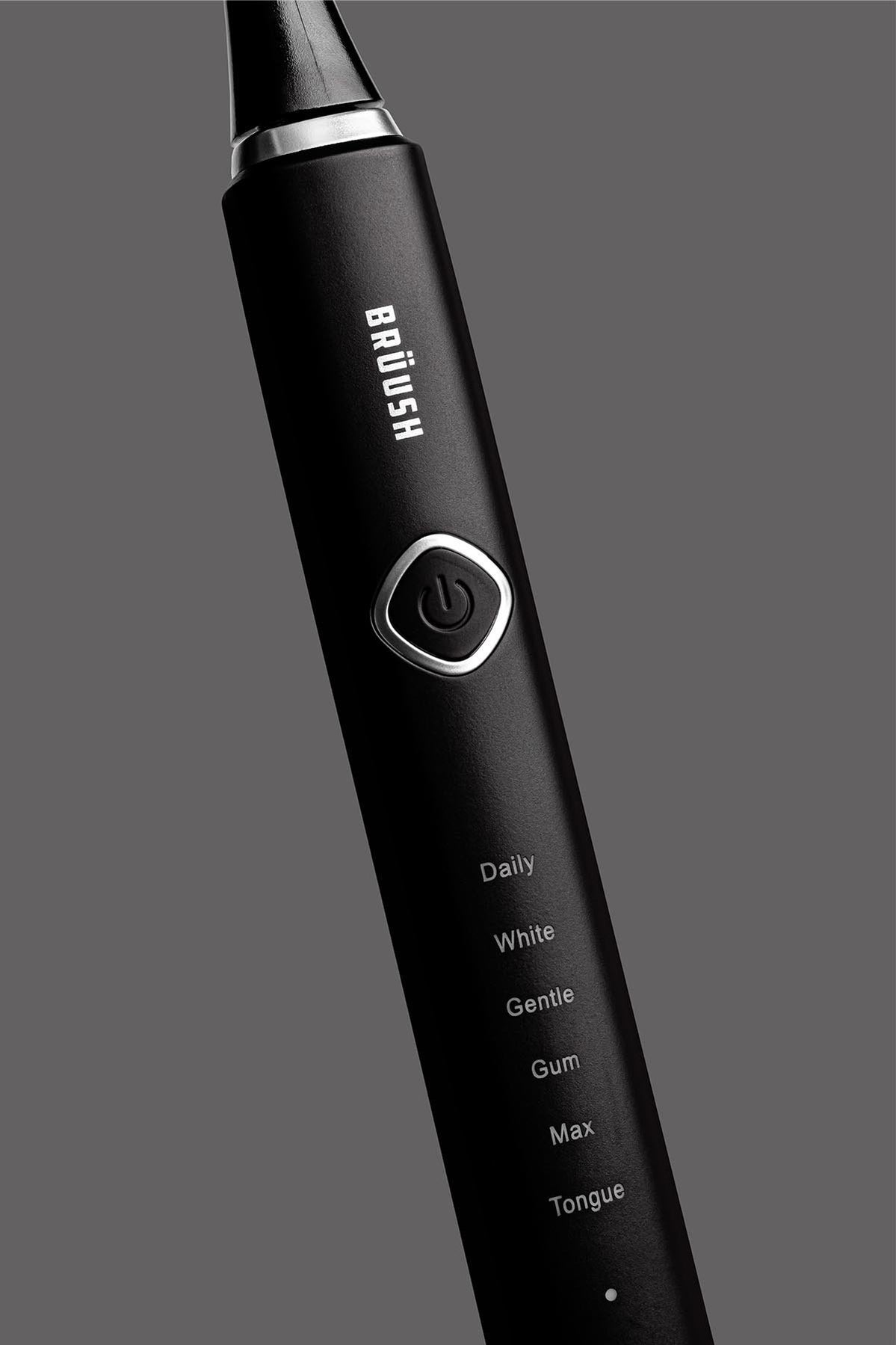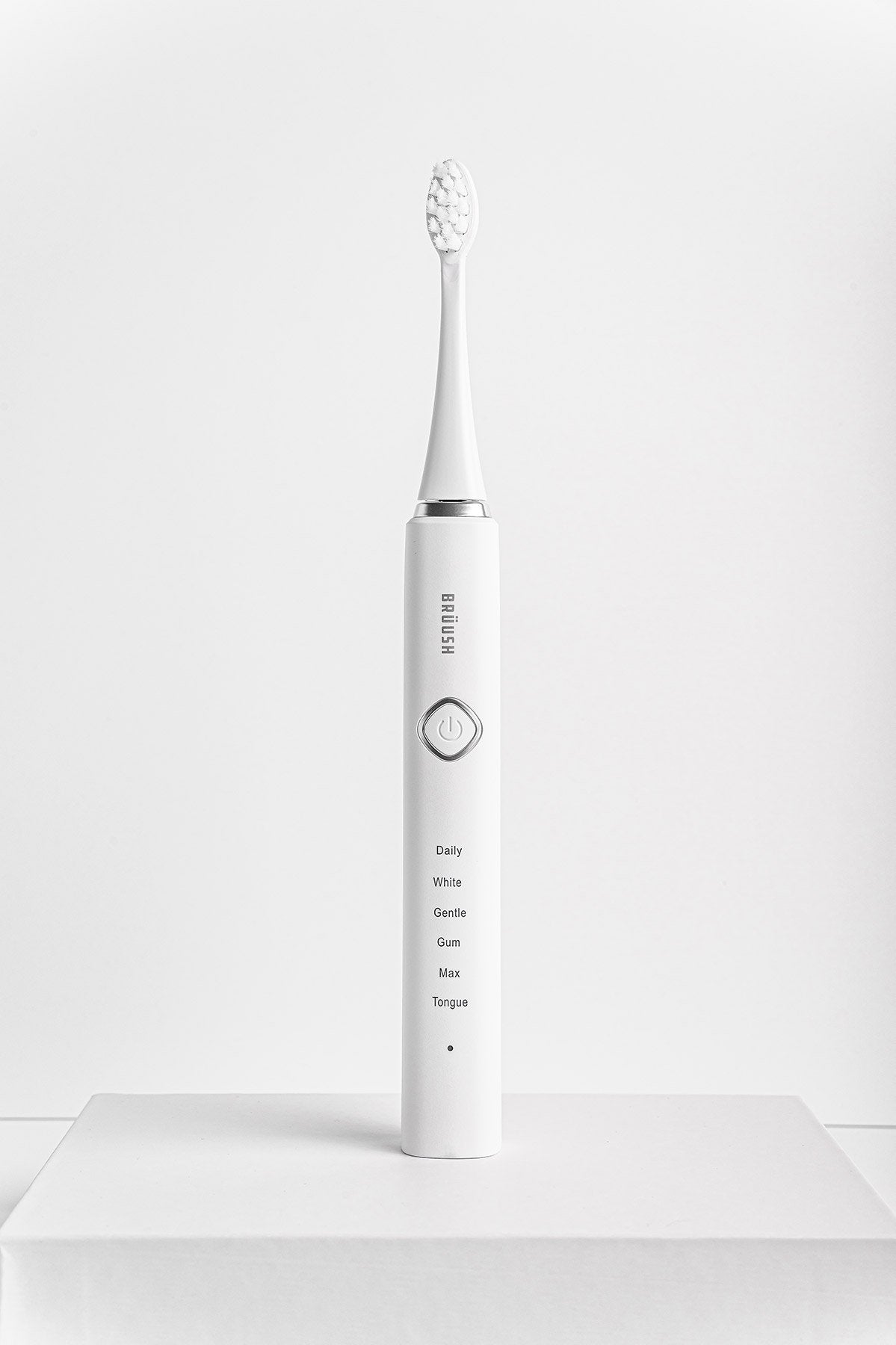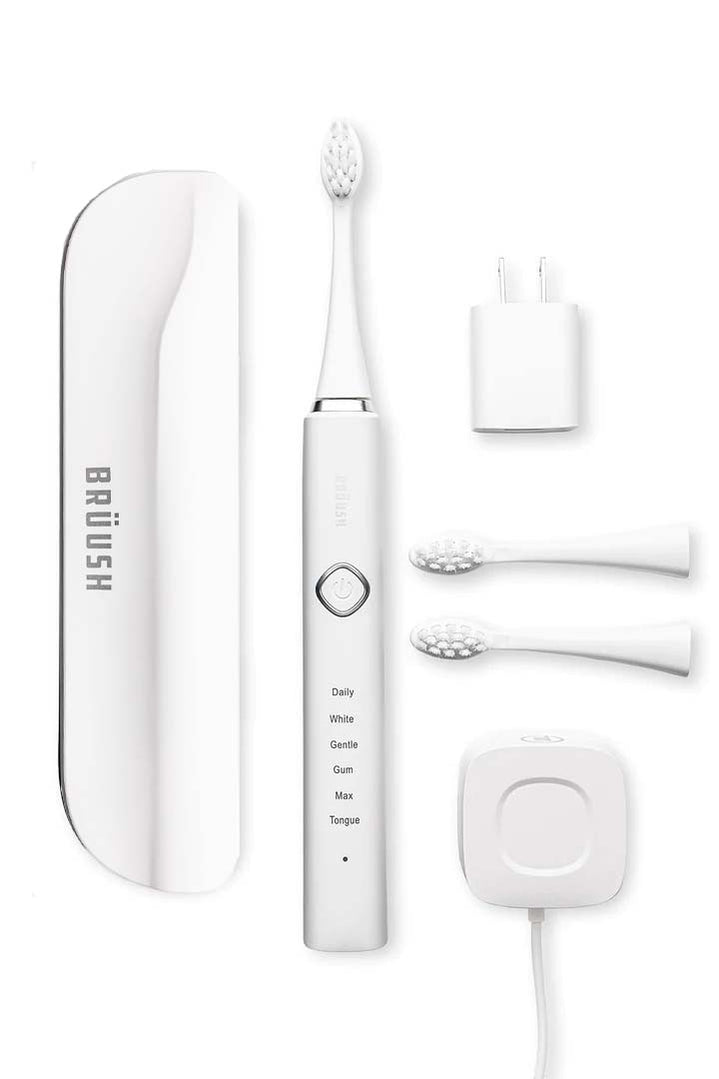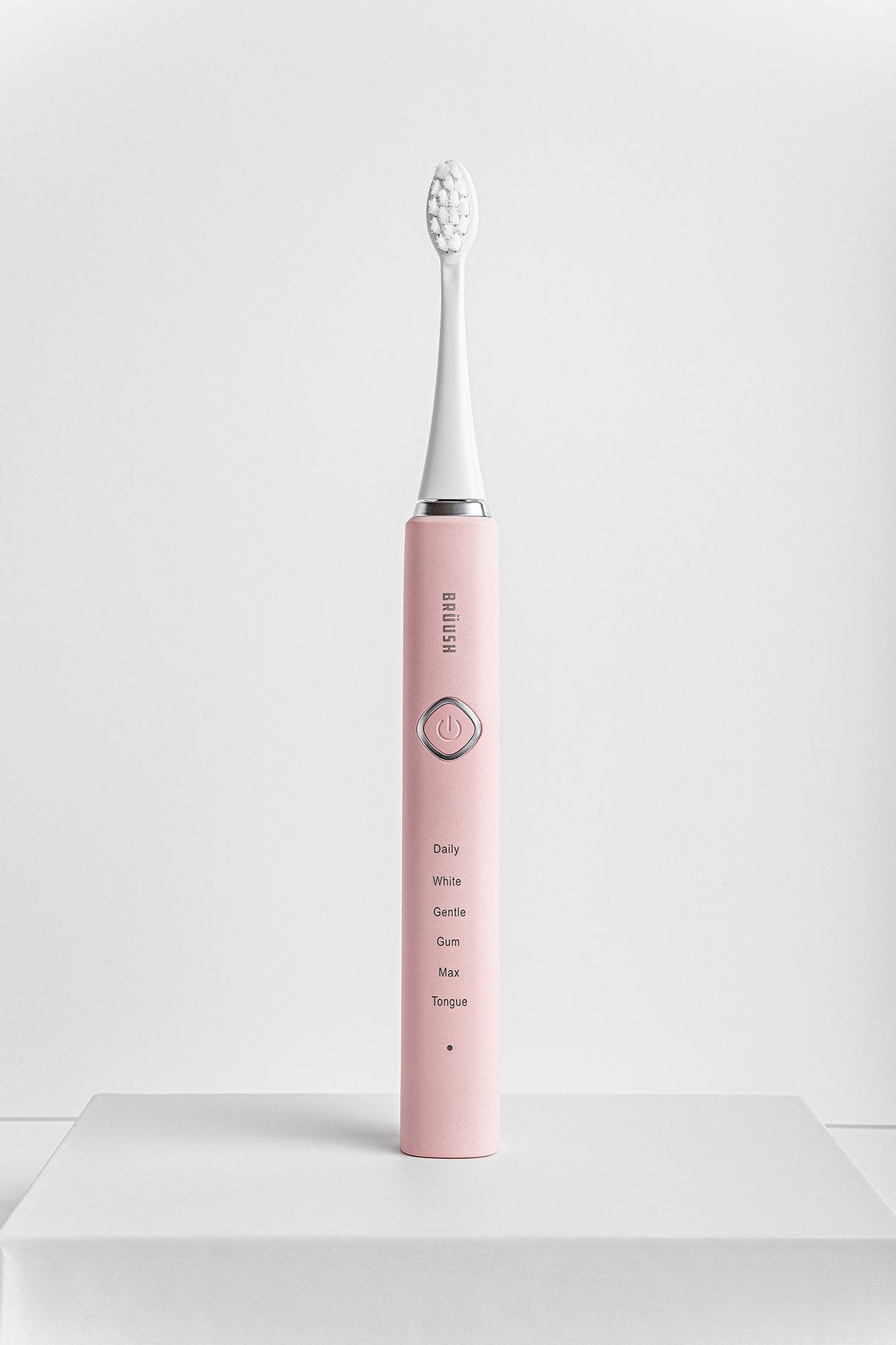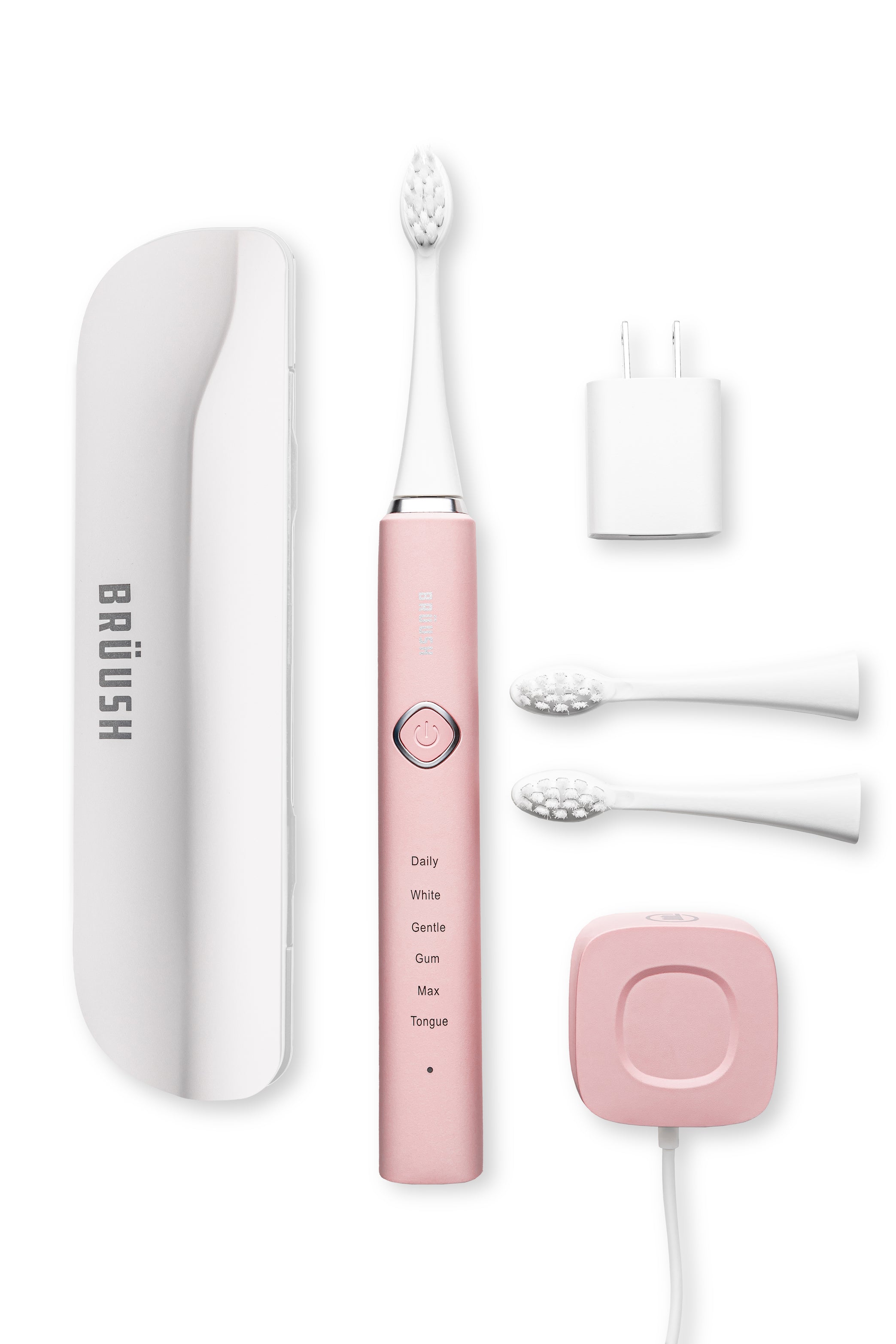For many people, when it comes to oral hygiene, the first thing that comes to mind is cleaning their teeth. Unfortunately, maintaining gum health is often an afterthought. As long as your teeth are stain-free and clean that’s all that matters, right? Hard nope.
Yes, brushing your teeth is a big part of making those pearly whites sparkle, but equally as important is keeping your gums healthy. And not only that, studies have also shown that your oral health and gum health can influence your body's overall health as well (more on that later).
In this blog we’ll be taking a look at 8 things that you can do to ensure that your gums are in tip-top shape. Hint: it’s all about prevention. They’re mostly simple tips and rules you should follow in order to keep your mouth, teeth and gums forever früush.

Why Healthy Gums Matter
Before we dive into how to keep your gums healthy, let's first take a look at why the health of your gums is so important.
Your gums actually support your teeth and keep them in place—without them, your teeth would be a big mess. Not only that, but they act as a protective barrier, creating a seal around your teeth. This seal prevents bacteria from getting into places it shouldn’t be.
Here are a few things that can be negatively affected by poor gum health:
- Your lungs. For people who suffer from periodontitis/periodontal disease, there is an increased chance of catching respiratory infections. There’s also a link between healthy gums promoting healthy lungs, particularly for those who suffer from COPD.
- Your emotional wellbeing. With a decline in healthy gums, there may be visible irritation, redness, tooth loss, bad breath and more. Naturally, this can take a toll on some people’s self confidence.
- Your heart. Yes, gum issues can even take a toll on your heart health, as it can increase the inflammation in your body. In the most severe of cases, this can even lead to a heart attack or stroke.
- Your nutrition. If your gums and teeth are sore/irritated, it can become tougher to chew and break down foods with a harder exterior (which happens to be some common fruit and vegetables). This can limit the types of food you’re comfortable eating, leading to a poor diet.
The 8 Best Ways To Keep Your Gums Healthy

1. Floss Daily
Do you ever notice that no matter how often you floss, the dentist is always telling you that you need to do it more? Well there's a good reason for that—flossing everyday is one of the most important components of maintaining the health of your gums. Yet, many people neglect this step in their brushing routine.
When plaque is left on your teeth it can harden into tartar, which can both stain your teeth, and irritate/inflame your gums (think bleeding, swollen, red gums). Tartar can eventually lead to gum disease, and nobody wants that. In order to avoid this, it’s important to floss daily to remove the plaque that your toothbrush can’t get to—you know, those extra hard to reach places—before it has the chance to harden.
2. Brush Twice A Day
Forgetting to floss every once in a while is forgivable. But do you know what isn’t? Forgetting to brush twice a day (once in the morning, and once before bed).
Plaque can begin to form on your teeth after eating, which is why it’s important to brush it off. Brushing every morning and night helps to ensure that the plaque doesn't turn into tartar—and we all know what happens when tartar is left to its own devices. BAD THINGS.
You could even brush after every meal to remove any plaque and leftover food, but it’s important to not overdo it. There is indeed such a thing as over-brushing. A good way to remove as much plaque as possible is to use an electric toothbrush. Not only do they remove plaque more effectively than a manual brush, but electric toothbrushes like this one from Brüush have a 2-minute timer and quadpacer to ensure that you’re spending just enough time in each area of your mouth for proper plaque removal.
3. Use The Right Type Of Toothpaste
Take a walk down the toothpaste aisle and you’ll quickly realize that there’s no shortage of options. There are tons of brands, each with various flavours, in a wide range of “benefits”. So, how do you pick the right toothpaste? Is there such a thing as bad toothpaste? Well, what is important, is that you find a toothpaste that has fluoride as an ingredient, and also has the ADA seal of acceptance.
As long as you make sure that your toothpaste has those two things, the brand, and flavour are completely up to you!
Some dentists recommend avoiding toothpastes with abrasives, such as charcoal or pumice, as these types of substances can actually scratch and wear away at the enamel. Whitening toothpastes will often contain abrasive ingredients, so it’s important to do your homework when choosing the right toothpaste for you.
TIP: It’s likely not going to be branded as “fluoride toothpaste”, so make sure to check the back of the box for active ingredients, as well as any harsh abrasives that you’ll likely want to avoid.
4. Use Mouthwash In Your Routine
Did you know that there are two different types of mouthwash? Ya, that's right, according to the ADA there are both cosmetic and therapeutic mouthwashes.
Cosmetic mouthwash simply masks bad breath, temporarily leaving a pleasant taste in your mouth. Therapeutic mouthwashes help to reduce and treat the following:
- Plaque
- Bad breath
- Gingivitis
- Tooth decay
As you can see, therapeutic mouthwash is overall a much better option when it comes to promoting healthy gums. It’s also important to note that mouthwash is not a replacement for brushing and flossing, but should rather be used in tandem for optimal gum health. Although it’s an optional step in your brushing routine, it has a lot of benefits!
5. Visit Your Dentist Regularly
It’s true, nothing gets your teeth cleaner than a professional cleaning at the dentist. You know that feeling we’re talking about—squeaky and smooth! A true dental cleaning is the only way to remove tartar (hardened plaque) that can lead to gum disease, not to mention, dentists and dental hygienists are able to get rid of plaque that you’re unable to reach yourself.
Another benefit that comes with regular visits to the dentist is they can help to identify and treat conditions like gum disease and gingivitis early before they develop into more serious problems.
6. Quit Smoking
We all know that smoking can stain your teeth yellow, but that's not all, it can affect the health of your gums as well. There’s a big correlation between smoking and gum disease—as a matter of fact, smokers are twice as likely to suffer from gum disease than non-smokers. One of the reasons for this, according to the CDC, is because smoking weakens your immune system, and can negatively affect your body's ability to fight off gum infections. Also, for those who have gum disease or tooth decay, treatment may be less effective if you’re a smoker.
It’s important to note that the longer you smoke, the more susceptible you are to gum disease—so, if you want to maintain healthy gums, the sooner you can quit the better! We won’t go into all of the other reasons why you shouldn’t smoke. You get the point—don’t do it.
7. Regularly Consume Dairy*
*If you can tolerate it.
If you were searching for an excuse to snack on more cheese, eat more yogurt parfaits, and drink more lattes, you’re welcome. There are some foods and drinks that actually promote healthy gums, and dairy happens to be one of them. It’s a great source of key minerals and vitamins that aid in dental health, such as vitamin D, calcium and phosphorus.
Dairy is low in sugar (making it a great choice of snack), and cheese in particular is low in acid, which can help to balance out the pH of your mouth. Heck, there’s even a study by the Journal of Periodontology which found that individuals who regularly consumed dairy products we’re less likely to get gum disease than those who did not.
Other foods that aid in good dental health: leafy greens, carrots, celery, nuts, apples, and lean protein.
8. Switch To An Electric Toothbrush
Want to give your teeth and gums the ultimate glow up? Switch to an electric toothbrush. If you’re already using one then you’ve experienced the difference in brushing quality. If you haven’t, what are you waiting for?
Here are just a few benefits of switching to a power toothbrush:
- You can clean your teeth a lot faster. Electric toothbrushes like Brüush can move at 31,000 strokes per minute, versus an average of 200 when using a manual.
- They’re far superior at removing plaque, which means they’re actually better for your gum health as well.
- They often come with different modes to target various concerns, like teeth whitening, gentle, gums, and more.

For an effective clean and healthy teeth, it’s also important to replace your toothbrush head before the bristles fray or get dirty. Brüush has a great solution for this—our refill plan will automatically send you 3 new brush heads every 6 months, so you never have to worry about using an old toothbrush head again.
It’s clear that taking care of your gums is a huge part of practicing good oral hygiene. Just brushing your teeth with the same toothbrush that you were given by your dentist at your last visit 6 months ago isn't good enough. No offence, dentists.
By following the tips laid out in this post, and using an electric toothbrush for a more thorough clean, you can greatly improve your gum health! Now, that’s a reason to smile.
